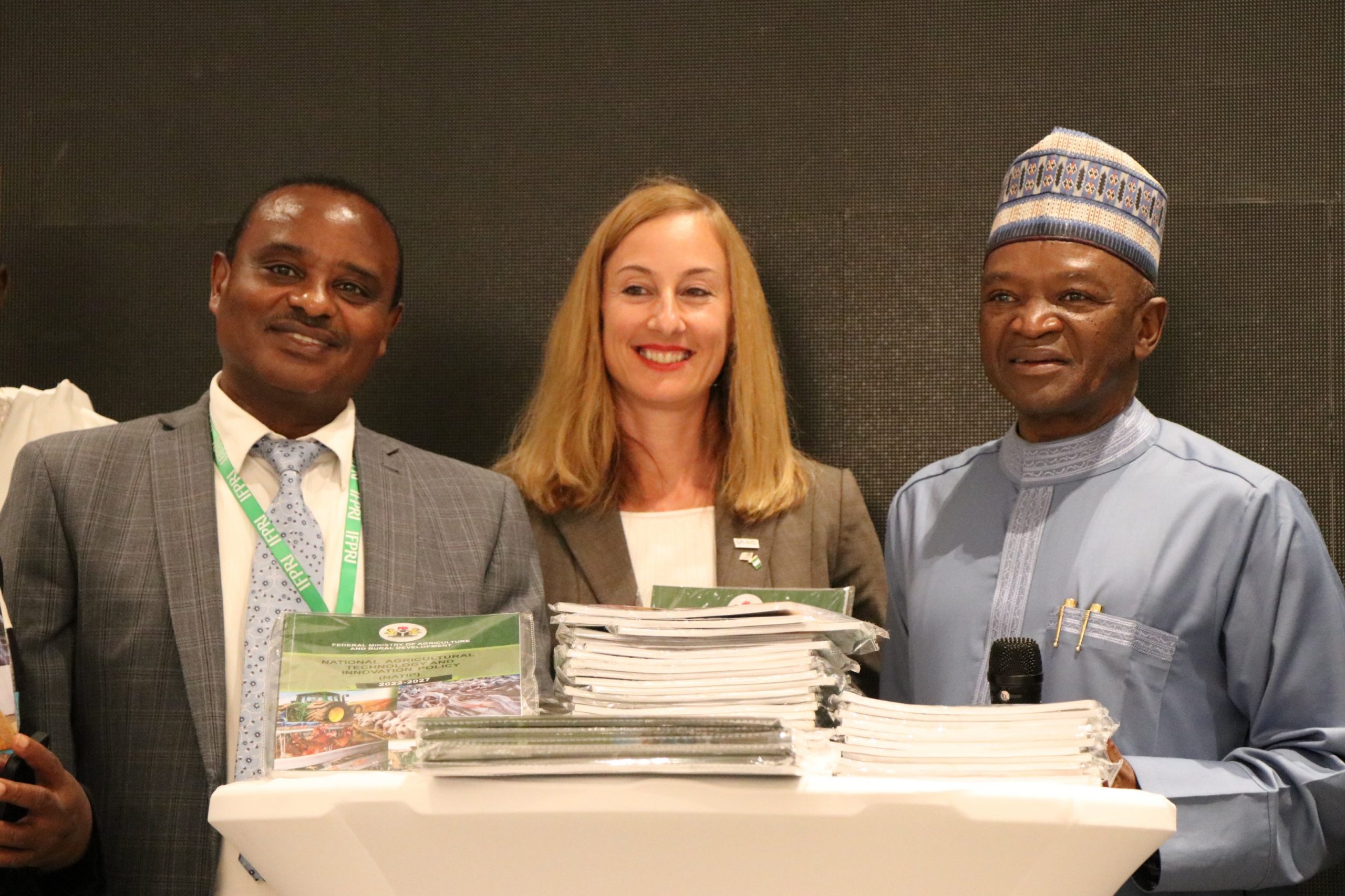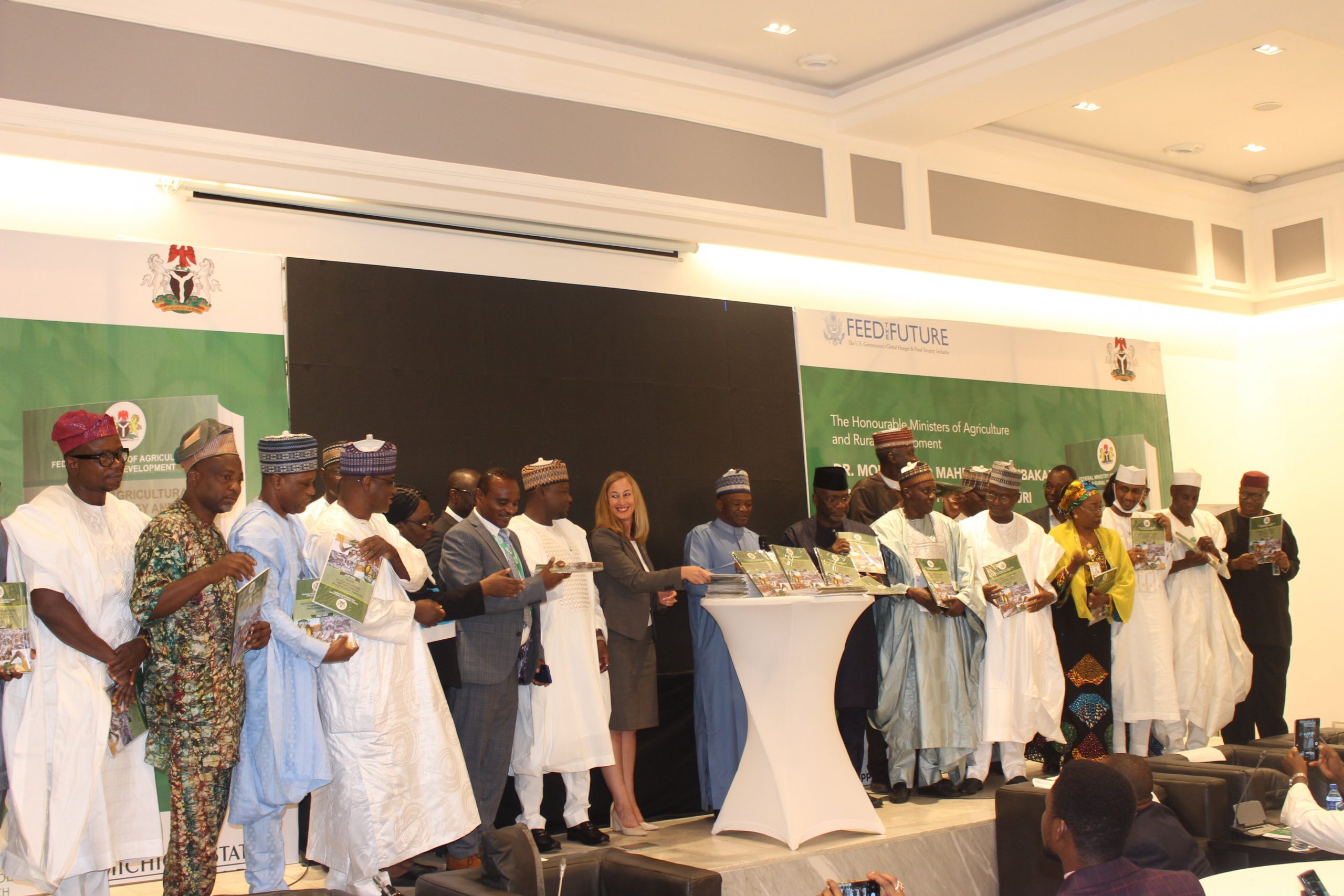
26 August 2022 marked an important day for the Nigerian agricultural sector as the Federal Ministry of Agriculture and Rural Development (FMARD) launched a new agriculture policy called the National Agricultural Technology and Innovation Policy (NATIP) in the nation's Federal Capital Territory (FCT) to provide a roadmap for the transformation of the agri-food systems in Nigeria. NATIP has a 6-year (2022 – 2027) time frame to generate thrust, capabilities and massive public and private sector investments for successful implementation.

Photo Credit: USAID Nigeria
NATIP was developed and launched with support from the USAID Nigeria Agriculture Policy Activity implemented by the International Food Policy Research Institute (IFPRI) and Michigan State University (MSU). NATIP is a policy envisioned by the FMARD, working in collaboration with Nigerian agriculture and allied services stakeholders. The policy aims to bring about long-lasting economic and social change through public and private sector investments in agriculture and rural development. It also seeks to meet the needs of women, young people, and people with special needs by consciously incorporating technology and innovation into the agricultural sector. With the assistance of the United States Agency for International Development (USAID) in Nigeria and other development partners, NATIP seeks to create synergies with sub-nationals and develop and spread useful technologies and innovations that cater to the needs of farmers.
Mohammad Mahmood Abubakar, Honorable Minister of Agriculture and Rural Development, launched the NATIP. Other participants included Sara Werth, Deputy Mission Director, USAID/Nigeria; Bedru Balana, Acting Country Program Leader, IFPRI-Nigeria; Mallam Ibrahim Abubakar; representing the FCT Minister, and many other representatives of various ministries, the National Assembly and international development organizations.

Photo Credit: AIT Television
Bedru Balana congratulated the ministry's leadership for guiding the process of producing the new and wide-ranging agricultural policy that will guide efforts to improve food security in Nigeria. Bedru noted that having engaged extensively with the ministry on NATIP, IFPRI is delighted to support this launching event and looks forward to continuing to work closely with the ministry and other partners in generating and disseminating research findings to guide the implementation of NATIP and enhance the use of research evidence in policymaking. Finally, he reminded all stakeholders that we all now must begin the important task of working together to achieve the NATIP Policy objectives.

Photo Credit: USAID Nigeria
In her goodwill message, the United State Agency for International Development (USAID) Deputy Mission Director, Sara Werth, said, "NATIP is a deliberate effort by the government of Nigeria to deploy knowledge and good agriculture practices to fast track the development of agriculture. It provides a roadmap for some of the agriculture sector's most pressing challenges. Together, this coordinated approach will lead to a diversified economy that guarantees access to nutritious food, growth and employment opportunities."
Other international organizations gave their goodwill message about NATIP, congratulating FMARD and all stakeholders for their tireless effort in developing the policy and pledging their support during the implementation stage to ensure its effectiveness.

Photo Credit: USAID Nigeria
The Honorable Minister of FMARD, Mohammad Mahmood Abubakar, gave a keynote address before the official unveiling of the policy booklets. In his speech, he said, "The focus of the NATIP policy is premised on the thematic areas of stakeholder's synergy and alignment, knowledge creation and transfer, rapid mechanization, agriculture development and establishment, extension delivery revitalization and livestock development. This collective effort sustains our continuous goal of responsibly harnessing and utilizing the country's human and material resources for the common good and economic growth."
The lead consultant for the development of NATIP, Prof. Murtala Sabo Sagagi, expatiated on the rigorous reviewing process that the policy has gone through, including review by experts through all the geo-political zones in Nigeria, ensuring its wide-reaching and expansive roadmap. He noted that the policy focus included commodities that are exhausting Nigeria's foreign reserve and the need to boost its local production, how it affects climate change and how it can increase job opportunities. Prof. Sagagi described all the policy components, explaining the importance of every component toward realizing a transformed agricultural system in Nigeria.
The unveiling of the NATIP Policy booklet by the Honorable Minister of the Federal Ministry of Agriculture and Rural Development together with other key stakeholders.
Photo Credit: Onilogbo Omobolanle, IFPRI
Click here to read the full policy document



